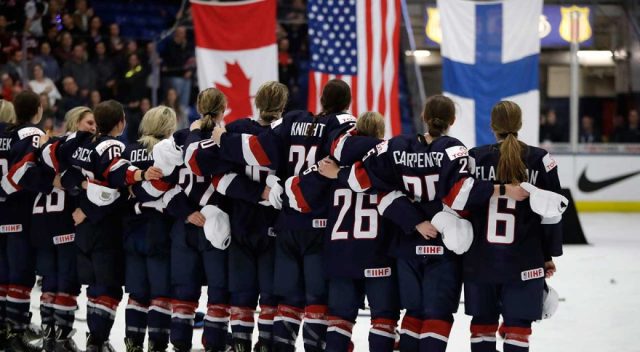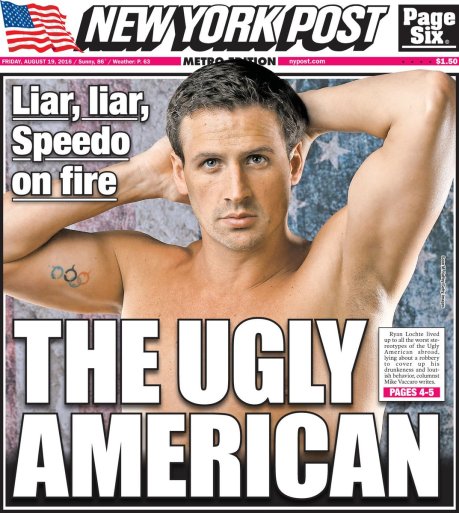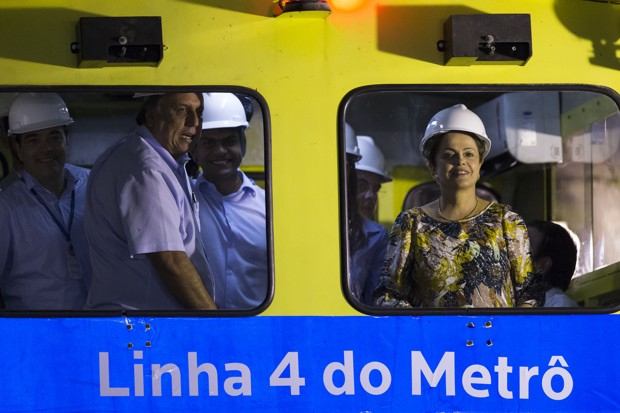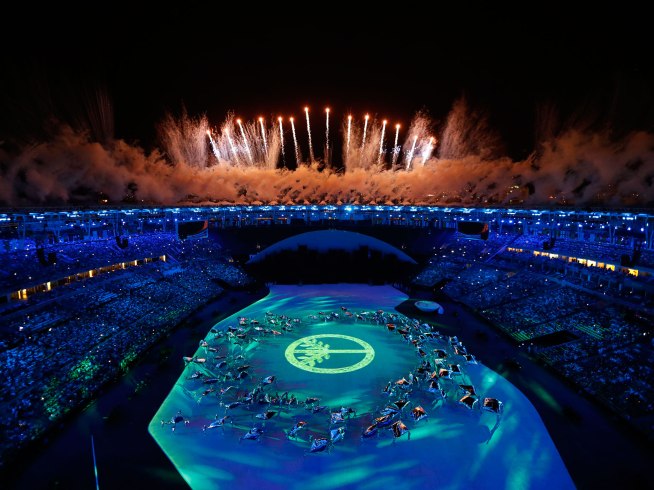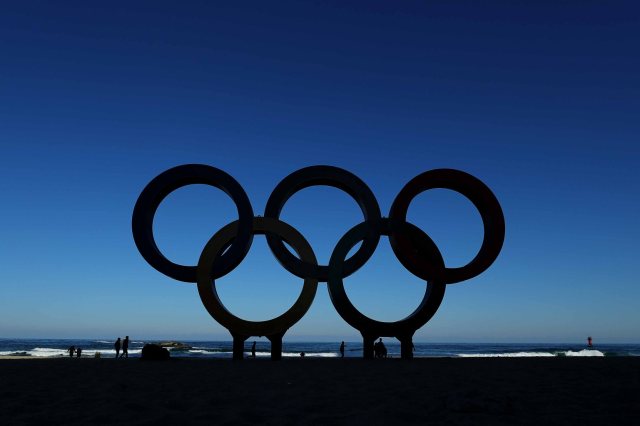
PYEONGCHANG-GUN, SOUTH KOREA – JANUARY 12: The Olympic Rings on the beach at Gangneung ahead of the Pyeongchang 2018 Winter Olympics on January 12, 2018 in Pyeongchang-gun, South Korea. (Photo by Richard Heathcote/Getty Images)
The 2018 Winter Olympics in Korea have just started. The media buildup this year, at least in the US, hasn’t been as dramatic as in previous Olympiads. Part of that is because the Winter Olympics just is not an event on the same scale as the Summer Games. Additionally, so much media space in the US is taken up by the Trump Presidency. I am actually not kidding here. He does sometimes weigh in on issues involving Korea, but frequently in a terrifying way. Not surprisingly, the threat of nuclear war on the peninsula has diminished the anticipation of the games to a large degree. The recent conciliatory overtures and participation of North Korea, with some help from the International Olympic Committee (IOC), has drawn attention back to the games, away from the potentially catastrophic political tensions between the two Koreas. Once the Olympics start, that political dynamic will become the backdrop behind a lot of narratives at these games.
One of the contributing factors to the slow start of the Olympic media barrage is that many of the writers who contribute regularly on the topic were covering the trial of Larry Nasser, a physician who sexually assaulted female athletes for Michigan State University, USA Gymnastics, and several prominent gymnastic clubs. In a trial that received global coverage, Nasser was convicted of assaulting hundreds of female patients over a period of decades. During the sentencing phase of the trial, Nasser’’s many victims, some of whom were high-profile World and Olympic Champions, spoke compellingly to a social and cultural moment. While there is plenty of news media to cover the political, social, and legal aspects of the case, what became clear as the 100+ victims testified, was the scale and comprehensiveness of the coverup by multiple institutions and dozens of personnel. A pervasive culture of protecting people in leadership positions at the expense of the safety of the athletes enabled Nasser to continue to abuse his patients for years. MSU and USA Gymnastics apparently hoped this episode would “blow over.” Like so much conventional wisdom, even from a few months ago, this now seems breathtakingly clueless. But as testimony became evidence, the institutions’ complicity in something truly horrible became glaringly obvious. Journalists covering American college sports and the Olympic movement were part of the effort to call out Nasser’s enablers. Eventually, the entire board of USA Gymnastics resigned on the insistence of the USOC, but only after an extensive battering in the media.
The involvement of the USOC itself in protecting Nasser will probably be an ongoing story, but the focus of the sports media has already begun pivot to the Olympics in Pyeongchang. Media coverage of most Olympiads usually begins with an avalanche of negative press about the impending disaster that will be next Olympiad. But with tensions so high on the Korean peninsula, “disaster” becomes relative. Nothing like the threat of nuclear war to keep things real.
Most of the infrastructure for the Korean games is complete, so officials are not at their panic stations explaining delays in the run-up. Fortunately for PyeongChang, expectations for the upcoming Olympic Games are significantly framed by the effort that came immediately before them. It is hard to imagine a more profligate and disruptive Olympics, both for humans and the environment, than Russia’s effort in Sochi. This year’s Games cost $13 billion, depending on how you measure it. But compared to Sochi’s jaw-dropping $51 billion, it seems downright cheap. In addition to the monumental costs and massive dislocation, Russia’s effort was also marred by the host country invading a participating country, Ukraine, during the ParaOlympics. Additionally, the hosts created a massive system of cheating with performance-enhancing drugs that resulted in the country (not the athletes) being banned completely from the upcoming Olympics. While the sports were as exciting as usual, the legacy of Sochi 2014 can best be described as corruption, fascism, and misery. Small wonder the IOC is having issues finding places to host the Winter Games
Just because Sochi set expectations super-low does not let PyeongChang off the hook, of course. There have been issues with cost overruns, corruption, and damage to the environment. But South Korea is a vibrant democracy where the political class has to keep their constituents happy or there can be consequences. Sometimes democratically-elected leadership can be so disappointing. In an endeavor like the Olympics, just trying do the right thing can make a huge difference. It is often softly implied that authoritarian regimes are better suited to hosting the Olympics than democratic ones. You’ve really got to idealize despotism to come to that conclusion and concede that the citizens living under an authoritarian system deserve the harm the regime visits upon them. Think for a moment if the other Korea was hosting these games. Suddenly democracy looks like a perfect match for the Olympics
Since I follow team sports, I was very disappointed when the National Hockey League did not release their players for the Olympics. As a result, I have been slow to get excited about the upcoming games myself. But after watching perhaps a dozen promos during the Super Bowl that seemed to have worked; I am in the spirit of things. Although tensions with the North tend to grab the headlines, there has been plenty of political upheaval in South Korea in recent months and that has altered the domestic political dynamic of these games. Korea’s sprawling corporate giants, the Chaebol, were central to successfully bidding for these Olympics and other events. They have largely been sidelined in the wake of corruption scandals and a recent change of government. All too often, the Olympics can be marred by corporate greed. South Korea has some of their most powerful corporate actors really minding their behavior for a change. I hope the country is able to take advantage of the situation. A successful effort in Korea could help recast the Winter Games in a more positive light. Besides, they borrowed the one really cool thing from the 2014 games. Korea has a beach for the Winter Olympics.


